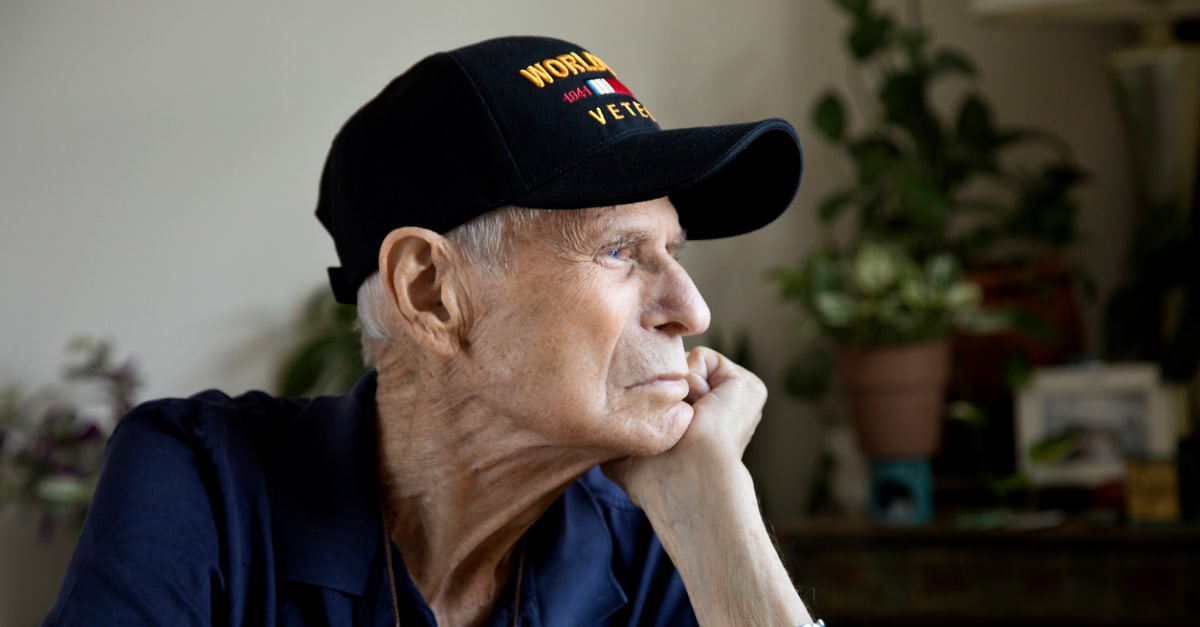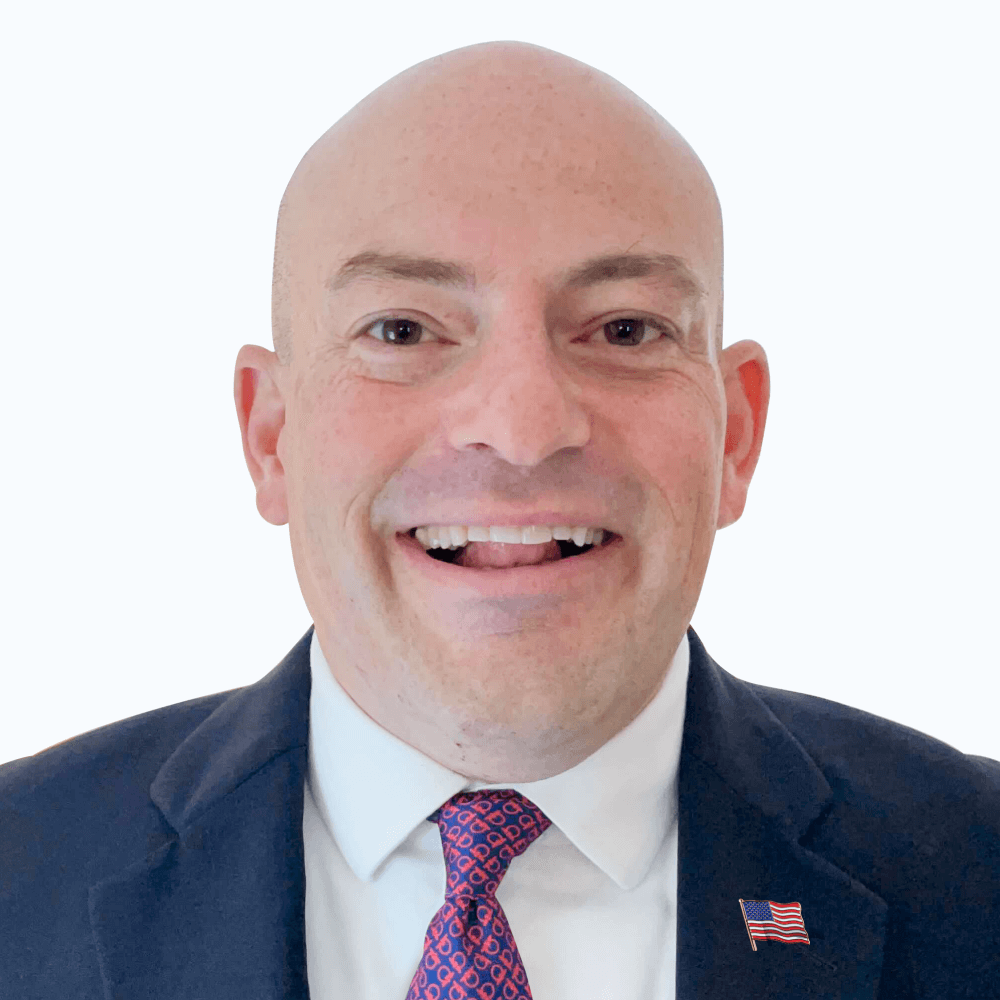Older U.S. veterans are at risk of mesothelioma, a cancer caused by asbestos exposure, due to the use of asbestos by the military decades ago. Many veterans also face mental health problems like depression following their military service.
Mental health and mesothelioma go hand in hand. U.S. veterans newly diagnosed with cancer are at a 47% higher risk of suicide, according to a 2023 study published by Cancer Medicine.
These veterans deserve our support for putting both their mental and physical health in danger for our country.
Learn why veterans are at risk and how the Mesothelioma Veterans Center works to support them. You can also request a Free Veterans Packet to see all the ways we can assist you or a loved one with mesothelioma.
How a Mesothelioma Diagnosis Impacts the Mental Health of U.S. Veterans
U.S. veterans who have been recently diagnosed with mesothelioma not only face a significant threat to their overall health but to their mental well-being as well.
U.S. veterans have a higher risk of mental health issues, particularly ones who served in combat. These concerns typically develop during or shortly after a veteran’s service.
However, the impacts of their past struggles could resurface when veterans are diagnosed with cancers like mesothelioma 10-50 years after service.
Mental health conditions that could worsen after a veteran’s diagnosis include:
- Anxiety disorders: An anxiety disorder may cause nightmares, an increased pulse, or intense fear.
- Bipolar disorder: Veterans with bipolar disorder may alternate between feeling a sense of euphoria and high energy, followed by feelings of depression and hopelessness.
- Depression: Depression is one of the most common mental disorders in the U.S., and roughly 1 in 3 veterans have symptoms.
- Post-traumatic stress disorder (PTSD): The U.S. Department of Veterans Affairs (VA) notes that 7% of all veterans will experience PTSD due to traumatic events during their service.
- Schizophrenia: Approximately 120,000 U.S. veterans receiving health care from the VA were diagnosed with schizophrenia in a recent study.
- Suicidal ideation: Extreme cases of anxiety or depression may lead to thoughts of suicide.
For anyone, a mesothelioma diagnosis takes a mental toll. However, it can be especially distressing for U.S. veterans since they may have been exposed to asbestos — the only known cause of this cancer — during the military career they were so proud of.
Why U.S. Veterans Are at Risk of Mesothelioma and Mental Health Issues
U.S. veterans were exposed to the horrors of war, which can trigger mental health disorders like anxiety and depression. Many who served in the 20th century also faced a hidden enemy: asbestos exposure, which is the only known cause of mesothelioma.
Between the 1930s and early 1980s, all military branches used asbestos-based products to keep assets like bases, buildings, and ships durable and fireproof.
Private companies that made asbestos-containing products knew exposure could lead to deadly health problems but did nothing to protect veterans.
Mesothelioma develops 10-50 years after exposure to asbestos, and for many, the diagnosis comes as a shock. This cancer is incredibly rare, affecting just 1,000 U.S. veterans a year.
U.S. Navy Veteran’s Pearl Harbor Trauma and Mesothelioma Diagnosis
Frank Curre, a proud U.S. Navy veteran, not only dealt with the lifelong trauma of surviving the Battle of Pearl Harbor but also a diagnosis of mesothelioma linked to asbestos exposure while he served.
Just months after joining the Navy, Frank bore witness to the Pearl Harbor attack on December 7, 1941, which launched the U.S. into World War II. The horrors of that day remained with him for the rest of his life.
“I still have the nightmares, never got over the nightmares. And with God as my witness, I read my paper this morning and I can't remember what I read. But what happened on that day is tattooed on your soul. There's no way I can forget that. I wish to God I could.”
— Frank Curre, U.S. Navy veteran with mesothelioma
Frank bravely endured this trauma and remained proud of his military service. He loved sharing World War II stories with news outlets like NPR and continued to do so even while fighting mesothelioma, which he developed in his mid-80s.
He passed away from mesothelioma on the 70th anniversary of Pearl Harbor in 2011.
How to Support U.S. Veterans with Mesothelioma and Mental Health Issues
If you or a loved one is a U.S. veteran struggling with their mental health on top of a mesothelioma diagnosis, explore the options listed below to get the support you deserve.
File or Increase VA Benefits
U.S. veterans diagnosed with mesothelioma typically qualify for maximum VA benefits since the cancer is almost always considered a 100% disability.
The VA awards $4,044.91 a month to married veterans with mesothelioma, and offers the lowest co-pays for medical care.
We can help you file for benefits or increase your VA disability rating to 100% so you can get the right care for mesothelioma and your mental health struggles.
Pursue Treatments
Veterans can get top mesothelioma treatments and support for mental health issues like depression or PTSD through the VA health care system.
The VA’s medical services rival those of private hospitals, and mesothelioma specialists are on staff at several facilities.
Use our Free Doctor Match for help finding civilian or military mesothelioma specialists who can help you.
Explore Financial Compensation Options
Veterans fighting mesothelioma may be able to pursue significant compensation through the legal system. Veterans who file mesothelioma lawsuits receive $1 million or more on average.
These lawsuits are never filed against the military or government. Rather, they are filed against manufacturers of asbestos-containing products that hid the risks of asbestos from military service members for decades.
Compensation can pay for cancer treatments, mental health counseling, and anything else as you see fit.
Find top lawyers who can help you file a lawsuit without affecting your ability to receive VA benefits.
We’re Here to Help Veterans with Mesothelioma
U.S. veterans who now face cancers like mesothelioma or mental health conditions shouldn’t fight these battles alone.
The Mesothelioma Veterans Center was founded to help veterans with mesothelioma navigate their next steps and get the resources they need to move forward.
Work with our team to:
- File for or increase your mesothelioma VA benefits
- Find top doctors and cancer centers near you
- Get support for mental health struggles
- Secure financial compensation to cover expenses
The Mesothelioma Veterans Center is the nation’s #1 resource for veterans fighting this cancer. Get our Free Veterans Packet to explore all the ways we can help you or a loved one.



